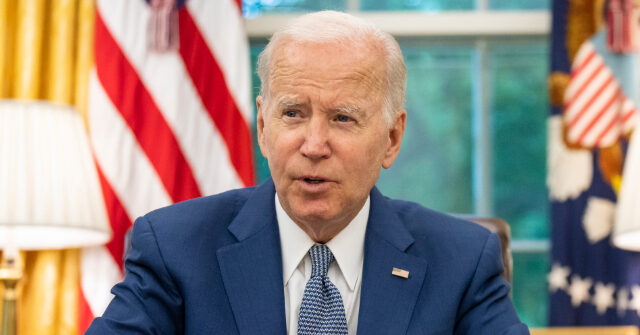On Thursday, President Joe Biden decided to commute the sentence of Mofid Abdel Kader Meshal, a prisoner linked to Hamas. Meshal, who is the half-brother of Khaled Meshaal, a billionaire leader of the militant group, had completed 16 years of a 20-year sentence for his involvement in the Holy Land Foundation terrorism funding trial. This trial determined that the foundation, a charity operating in the United States, was involved in channeling donations to Hamas, which had been designated as a terrorist organization. In conjunction with this decision, Biden also issued 39 pardons and commuted roughly 1,500 sentences affecting a variety of individuals, which included some controversial cases.
The Holy Land Foundation case has been at the center of a prolonged public debate, especially as it implicated various individuals and organizations in alleged terrorist financing. Among them was the Council on American-Islamic Relations (CAIR), which was named an un-indicted co-conspirator during the trial. The Biden-Harris administration has been known to work with CAIR on certain issues, including attempts to revise the White House’s approach to antisemitism. The commutation of Meshal’s sentence raises questions regarding the administration’s stance on terrorism and its implications on U.S.-Israel relations, particularly since Hamas is currently holding American hostages in Gaza.
The rationale behind Biden’s decision is not immediately clear. This timing has sparked significant backlash, particularly from observers who view the release of a Hamas-related individual as problematic while Americans remain under duress from the same group. The puzzling nature of this decision leaves room for speculation about the potential influence of behind-the-scenes negotiations between the U.S. and Hamas, especially as discussions concerning hostages taken by Hamas seem to have intensified recently amidst a fragile geopolitical climate.
Analysts suggest that this commutation may tie into broader hostage negotiations, with reports indicating that progress might be occurring. Speculations arose following remarks from President-elect Donald Trump, who threatened serious repercussions if the remaining American hostages were not released by January 20. This development may reflect shifting dynamics, particularly given the diminishing military support for Hamas following the collapse of the Assad regime in Syria. A perceived need to ensure the safety of American citizens held hostage could have played a pivotal role in the president’s decision-making process.
Joel B. Pollak, a notable figure in conservative media and politics, has echoed critics’ sentiments regarding the implications of this commutation. As the Senior Editor-at-Large at Breitbart News and an author with a focus on U.S. political events, Pollak has provided insights into the political landscape surrounding Biden’s administration. He highlights the discord created by such controversial decisions and their potential influence on public opinion, especially within communities closely following the situation in Israel and Gaza. The complexity of the issue reflects the delicate balance the administration must strike between its internal policies and external diplomatic relations.
In summation, President Biden’s commutation of Mofid Abdel Kader Meshal prompts a complex juxtaposition of legal, social, and diplomatic ramifications. While the decision may align with a broader criminal justice reform agenda, critics question its motivations and timing amidst existing threats from Hamas. The administration’s communications and actions in relation to both national security and humanitarian concerns must be scrutinized as they shape future U.S. foreign policy and domestic relations. As the political landscape evolves, ongoing debates will likely continue regarding the implications of such actions on public safety and international relations, particularly in relation to the pressing issues surrounding hostages and terrorism.

